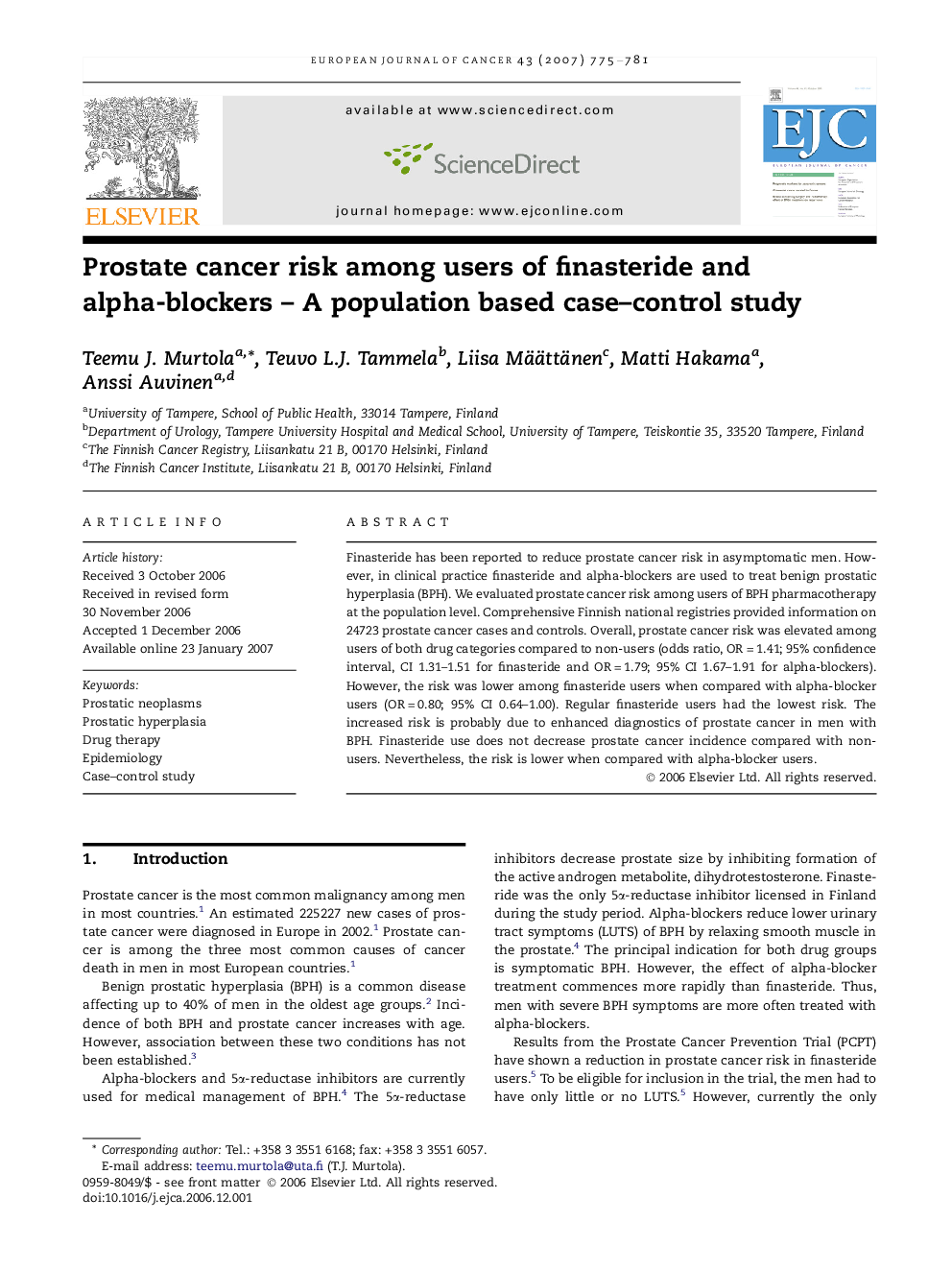| Article ID | Journal | Published Year | Pages | File Type |
|---|---|---|---|---|
| 2124651 | European Journal of Cancer | 2007 | 7 Pages |
Abstract
Finasteride has been reported to reduce prostate cancer risk in asymptomatic men. However, in clinical practice finasteride and alpha-blockers are used to treat benign prostatic hyperplasia (BPH). We evaluated prostate cancer risk among users of BPH pharmacotherapy at the population level. Comprehensive Finnish national registries provided information on 24723 prostate cancer cases and controls. Overall, prostate cancer risk was elevated among users of both drug categories compared to non-users (odds ratio, ORÂ =Â 1.41; 95% confidence interval, CI 1.31-1.51 for finasteride and ORÂ =Â 1.79; 95% CI 1.67-1.91 for alpha-blockers). However, the risk was lower among finasteride users when compared with alpha-blocker users (ORÂ =Â 0.80; 95% CI 0.64-1.00). Regular finasteride users had the lowest risk. The increased risk is probably due to enhanced diagnostics of prostate cancer in men with BPH. Finasteride use does not decrease prostate cancer incidence compared with non-users. Nevertheless, the risk is lower when compared with alpha-blocker users.
Related Topics
Life Sciences
Biochemistry, Genetics and Molecular Biology
Cancer Research
Authors
Teemu J. Murtola, Teuvo L.J. Tammela, Liisa Määttänen, Matti Hakama, Anssi Auvinen,
